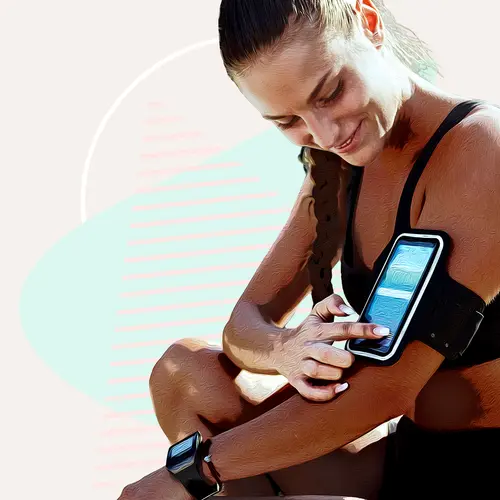Exercise is an important part of healthy aging. It helps keep your heart, lungs, and brain healthy and your muscles strong. Many older people turn to cycling as a healthy, stimulating activity.
Benefits of Cycling After 50
Cycling is a great endurance exercise called aerobic exercise. It increases your heart rate and improves your breathing. This helps keep you healthy and gives you better staying power so that you can do the things you need to do every day. Endurance exercise like cycling can help prevent:
- Diabetes
- Colon cancer
- Breast cancer
- Heart disease
Exercise is also important for treating arthritis. Extra weight can cause pain because it adds stress on the joints. Exercise helps you keep a healthy weight, which can help your joints feel better. The muscles around the joint can also get weak if you don’t exercise. This means they won’t be able to absorb shock from moving and can make your joints hurt more.
Regular exercise can also help your mood and your memory. This is because it can increase blood flow in your brain.
Studies also show that cycling outside can also improve your mood and give you a sense of well-being. The combination of exercise and the outdoor environment has positive effects on your health.
Negatives of Cycling After 50
Exercise rarely has drawbacks because it’s important for keeping good health. But there might be times when cycling has some unwanted side effects. These can happen when you first start cycling and are building up your strength when you forget to warm up, or if you have an injury. These side effects can include:
- Soreness
- Muscle tightness
- Tiredness
- Feeling out of breath
It can feel like cycling is too hard when you first start, but as you keep going it will get easier and feel better.
Cycling while being outside can help you feel better, but you’re also at the mercy of the weather. Older people and people who have other health problems are more likely to get sick in the heat.
Cold weather can also make it hard to cycle. The snow and ice can be too slippery for cycling, which might cause you to fall.
How to Start Cycling
Cycling is a great way to get exercise after age 50. If you want to start cycling, there are some things to think about.
Find the right bike for you. You will need a bike that fits you. You should be able to sit on the seat and comfortably reach the handlebars and pedals. You should adjust the seat so that it is at hip height while standing.
If you are buying a used bike, make sure the brakes work and all of the parts of the frame are together.
Get a helmet that fits. Helmets are an important part of cycling safety. Try on some helmets to find the right fit for you. It should sit level on your head and be snug. The snap should be tight enough to fit two fingers between your chin and the strap. The buckle should be centered under your chin.
Find the right riding gear. It’s a good idea to find the right light exercise clothes for summer so you don’t overheat and warm enough clothing for cooler weather. Make sure your gear is reflective. You will need a light for the front of your bike and some reflectors so cars can see you. Wearing a backpack to hold your water and belongings will keep your hands free.
Get familiar with road rules. Ride on the road instead of sidewalks and in the same direction as cars. Learn about how to signal to turn. It’s a good idea to practice riding on a path or at a park before you head out onto the road.
Safety Concerns of Cycling After 50
When you’re ready to start cycling, aim for 150 minutes a week for exercise. To keep safe, make sure to:
- Warm up and cool down with stretches
- Drink lots of water
- Pay attention to the cars and people around you
- Don’t listen to music while you cycle
- Dress in layers
- Listen to your body
- Plan your route
- Keep your belongings in a backpack on your back
- Tie your shoelaces
- Tuck your pants in so they don’t get caught in the chain
- Ride during the day
- Practice riding in a park or on a path before going on the road
- Don’t drink alcohol and ride your bike
It’s important to listen to your body as you exercise. Cycling should not make you feel any of the following symptoms:
- Dizziness
- Chest pain
- Chest pressure
- Heartburn
If you have these symptoms while you cycle, make sure you talk to your doctor.
Cycling can be an excellent exercise to keep you healthy as you get older. Call 911 for any chest pain or pressure. If you have any concerns, make sure to check with your doctor before you start.

